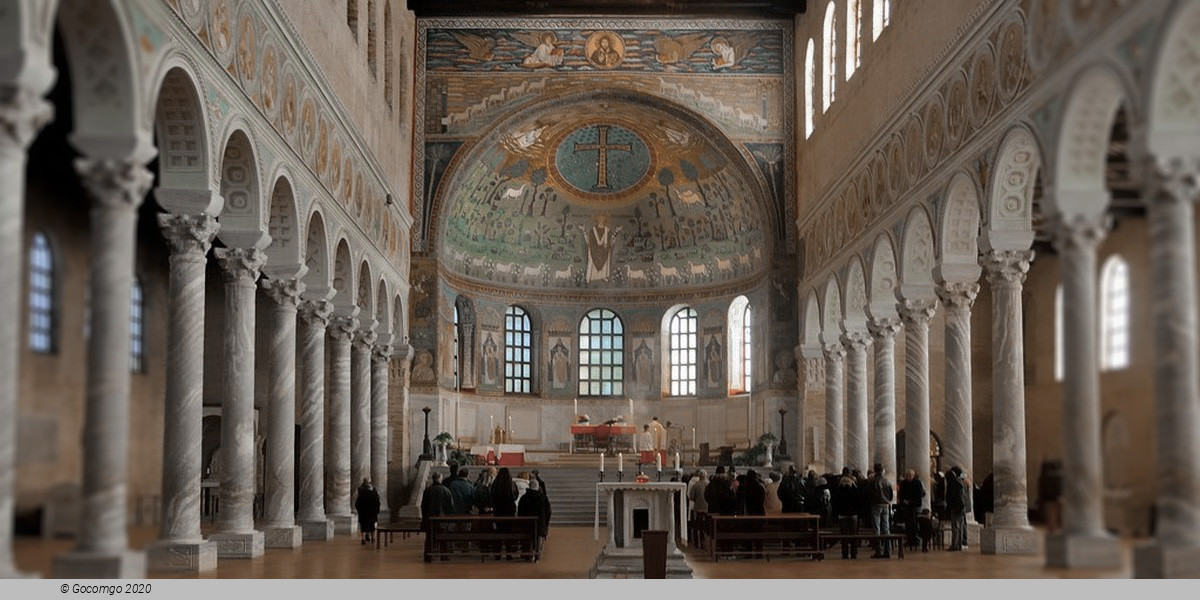Basilica di Sant`Apollinare in Classe (Ravenna, Italy)
Basilica di Sant`Apollinare in Classe

Grandiose and solemn, Sant’Apollinare in Classe represents the greatest example of Paleochristian basilica. In 549 it was consecrated to Saint Apollinare by Massimiano of Pola, the first archbishop of the city and an eminent ambassador of Emperor Giustiniano.
According to the legend, the proto-bishop Apollinare, martyrised at the Port of Classe on July 23rd, 74 AD, was buried here. Originally, the façade included a four-sided portico, whose remains were discovered in 1870. On the right side of the building, the 9th-century mighty round bell tower is the most beautiful of its kind in the area: over 37-metre high, it is scattered with two and three-light mullioned windows. Inside the basilica, the three naves are separated by 24 Greek marble columns, while the presbytery and the apsidal conch are covered in splendid mosaics, the last work of Byzantine hands in Ravenna. Here the classical naturalism was replaced by the more conventional Oriental symbolism. Then the interior was far richer, since the ceiling was coffered, the walls covered in marble and the floor in mosaics. But the marble was taken to Rimini in 1450, as per agreement between Sigismondo Malatesta and the monks, where it would be used for the enlargement of the church of San Francesco. The current aspect of the basilica owes to the early 20th century works attended to by Corrado Ricci. In October 1960, Pope Giovanni XXIII elevated it to the rank of minor basilica, in order to strengthen its tie with the Church. Since 1996 it is listed among the World Heritage sites. A place of worship for centuries, the basilica turned into a stage for the first time in 1965 with the celebrations for the 7th centenary of Dante Alighieri’s birth. On May 27th the Haydn Orchestra of Bolzano and Trento, conducted by Antonio de Bavier with the choirs Radio Prague and the Children of Prague, performs Bach’s Great Mass in B minor. On September 12th Giuseppe Verdi’s Requiem Mass was performed by the Orchestra and Choir of the Comunale of Florence, Robert Zeller was on the podium. Ravenna Festival has embraced this place, a symbol of the city, since July 26th, 1990, when the Maggio Musicale of Florence, under the baton of Carlo Maria Giulini, played Ludwig van Beethoven’s masterpiece, the Symphony no. 9 in D minor.


